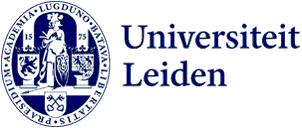
‘Technology for a healthy future for kidney patients’
Technological innovations such as home dialysis could significantly improve the quality of life and health of kidney patients. Professor Joris Rotmans therefore wants to continue pushing for new medical technology, as he will explain in his inaugural lecture on 24 March.
Rotmans will begin his inaugural lecture with a guide to the kidneys and how they work. He will talk about the crucial role they play in a large number of regulation mechanisms in the body. And about the impact of kidney failure and possible treatment options.
Complex techniques
‘The kidney’s complex and central role makes it a really engrossing organ to study and gain new knowledge about how it works and the effect of problems with this organ. As kidney disease researchers our scientific fascination will not end soon and new problems will always arise that we will try to solve with increasingly complex techniques,’ says Rotmans.
Dutch internist Willem Kolff is a major source of inspiration for Rotmans. Kolff was born in Leiden and won international recognition as the pioneer of haemodialysis. He invented the artificial kidney at the age of 32 under challenging circumstances in 1943, thus laying the foundations for the treatment of millions of kidney patients.
‘Making haemodialysis accessible as a home treatment would be a huge improvement’
Since Kolff first successfully used haemodialysis to treat a patient, the treatment has improved greatly in several respects. ‘The current focus of further improvements to haemodialysis is on optimising waste removal, making haemodialysis more accessible as a home treatment and reducing the complications of vascular access.’
‘Patients are what motivate me’
Rotmans’s research largely focuses on haemodialysis and vascular access in particular. ‘In my work as an internist and in the years since, I have seen many patients experience serious problems or even die from vascular access complications. They are what motivates me to want to improve vascular access for haemodialysis. Good vascular access is crucial because around 300 millilitres of blood per minute has to be cleaned by the dialysis machine and returned to the patient.’
Rotmans will also discuss some innovations from his research that should improve vascular access. On the one hand, he is working on biological interventions to ensure the blood vessels for vascular access work properly, and on the other, he is developing medical devices to improve vascular access. ‘My dream is to develop patient-friendly and sustainable vascular access for haemodialysis and to make this available to patients through a modern public-private collaboration,’ he says.
Lack of staff and money
Rotmans will also discuss some of the current challenges facing the healthcare system. First, finding enough staff to provide the care needed and second generating sufficient revenue to fund the care. ‘It’s because we can do more and more, because technology is continually advancing and new treatments are emerging all the time, that healthcare funding is no longer enough,’ says Rotmans. He will offer suggestions on how to deal with the lack of staff and funding, and how to make healthcare more sustainable.
Watch Joris Rotman’s inaugural lecture live from 17.00 hrs on Friday 24 March.
This text was previously published on the LUMC website.
